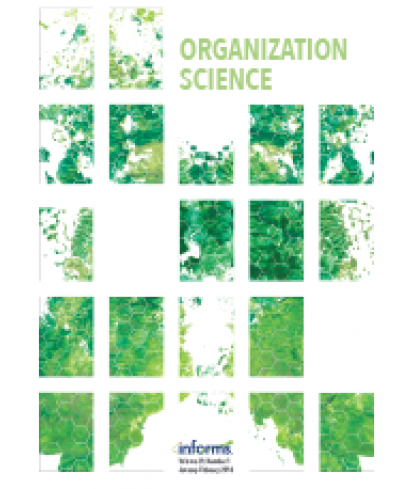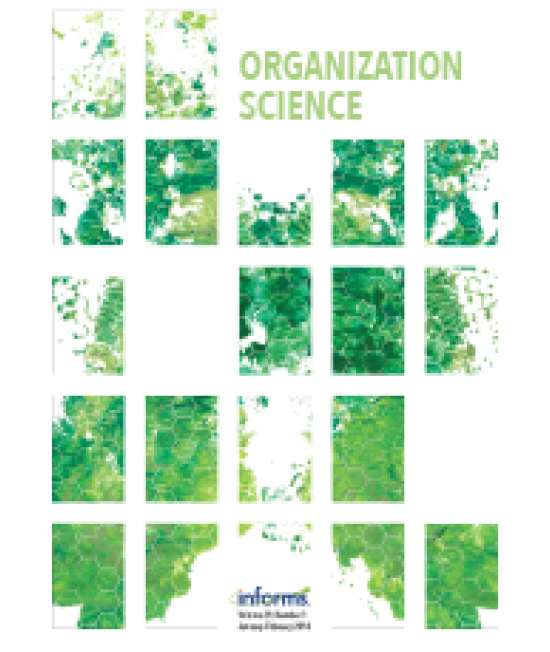Organization Science
INFO
- - Product Code: 6 issues per year
- - Availability: In Stock
 Call for Price
Call for Price
Organization Science publishes fundamental research about organizations, including their processes, structures, technologies, identities, capabilities, forms, and performance. Research from different disciplines, such as organizational behavior and theory, strategic management, psychology, sociology, economics, political science, information systems, technology management, communication, and cognitive science, is represented in the journal. We welcome research at different levels of analysis, including the organization, the groups or units that constitute organizations, and the networks in which organizations are embedded. Diverse methods and approaches are also welcome. Creative insight often occurs at the boundaries between traditional research approaches and topic areas. The editors are especially interested in manuscripts that break new ground rather than ones that make incremental contributions. In addition to the original research reports that are the core of the journal, we occasionally publish essays in our “Perspectives” section that direct attention to an important new organizational phenomenon or redirect a line of research. We also publish essays in our “Crossroads” section that capture a current debate about organizations. More specifically, Organization Science seeks to publish papers that start or redirect a line of inquiry; draw upon multiple disciplines; employ diverse methods, including qualitative, field, survey, archival, laboratory, and computational methods; focus on different kinds of organizations, including firms, not-for-profit organizations, and voluntary organizations; make a theoretical contribution; provide new empirical findings; achieve genuine integration of theory and data; provide a theoretically driven review and integration of an important research area; and/or discuss findings in terms of improving organizational performance.







FACEBOOK